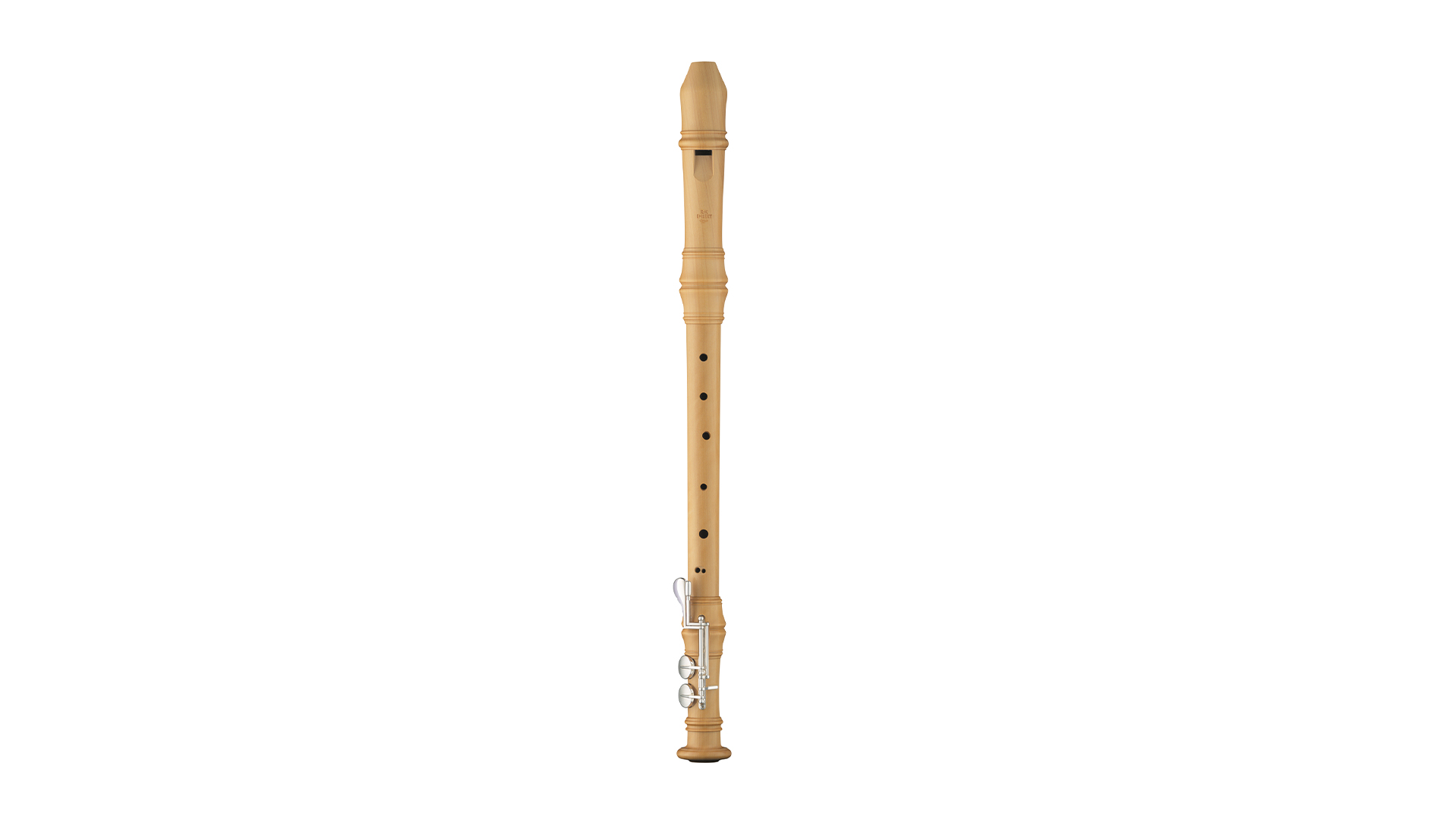Baroque Doublehole, Item: 5443-MOE Natural, 442 Hz
This instrument with the article number: 5443-MOE from Moeck is a musical tool, that in daily use continues to can make happy.
This property is based to a large part on the clever merging of the marvelous concept in combination with the characteristics of the material Boxwood.
The bore
The geometry of the inner bore of the instrument is cylindroconical and very wide. This kind of bore shape grants the instrument this characteristic tone.In principle, recorders with wider bore sound warmer, fuller, more fundamental and thus more suitable for ensembles than instruments with narrower inner bore.
For what styles can this instrument be used for?
Boxwood is greatly suitable for instruments used for: All styles.To whom is this instrument addressed?
For the above facts it follows that instruments made of Boxwood are especially for ambitious amateurs and advanced players recommendable. A further principle is that a better instrument makes the learning as uncomplicated apparently low-cost offer.The windway of a recorder
The windway is the area in the recorder head where the breath of the musician is formed into a sheet of air. This air leaf is the determining element of the sound of the recorder. In interaction with the labium, the air flow is very quickly alternately directed inwards and outwards. This swinging stream stimulates the air in the bore. This is the origin of the recorder sound. This is the reason why the labium must never be damaged. The same applies to the windway. Otherwise suffer the variability of musical expressiveness of the instrument.
The windway of the model 5443-MOE of Moeck has this windway shape: Curved, conical.Conical windways accelerate breathing air more than cylindrical shaped windways.
Never violate windway and labium! Their meaning for the sound is very complex in their geometric shape. Damages here often lead to a total loss!
Fingerings
The model Moeck 5443-MOE is delivered in the following version: Baroque Doublehole .
Construction
The method of construction a recorder influences strongly the way with which it in daily use on the one hand is uncomplicated to handle in terms of easy gripping and on the other hand for the convenient transport.
A point that becomes especially important when larger or multiple instruments to.
{Experienced ensemble players can tell you a thing or two about this. Or ask large playing circles.
Leaders of large ensembles know how useful good and compact recorder cases are.
Packaging and accessories
The model is supplied as standard with: CaseThe following accessories included: Wiper rod, drying cloth, pivot grease, care instructions, fingering chart
Notes for finding a new instrument
Ask acquaintances!The search for your instrument should never be influenced by well-meaning advice.
Get your own realizations after testing a recorder. Don't let "generally valid" rules, such as "the material xy doesn't work at all in an ensemble/for professionals.
Do not let others stop you from playing a unkown brand.
Your musical perception is as unique as you are.
Therefore, only you can decide which recorder will happy.
Our recommendation is therefore: Test new models!
After that you will be delighted and can make a safe decision.
Information about instruments with keys
Not always can the tone holes be drilled in places in the body that are easy and convenient to reach with the fingers. Especially with bass instruments sit for acoustic necessities some tone holes adequate to reach. On these instruments, keys are added, which make gripping clearly easier, or possible in the first place.This allows it to be {pleasant|light|ergonomic|conspicuous|above average| good play even by players with smaller hands.
The instrument 5443-MOE has the following flaps: Foot flap 2-fold
| Accessories: | Wiper rod, drying cloth, pivot grease, care instructions, fingering chart |
|---|---|
| Bore shape: | cylindroconical and very wide |
| Construction: | 3-part (head, middle, foot) |
| Fingering: | Baroque Doublehole |
| Keys: | Foot flap 2-fold |
| Material: | Boxwood |
| Material: Botanical name: | Calycophyllum multiflorum |
| Material: Country of origin: | Argentina, Brazil |
| Packing: | Case |
| Surface treatment: | Natural |
| Target group: | Ambitious amateurs and advanced players |
| Windway: | Curved, conical |
| Size: | Tenor |
| Tuning pitch: | 442 Hz |
| Group: | Recorder |
| Material structure: | Boxwood: Partly porous structure |
| Musical use: | All styles |
| Sound characteristics: | Boxwood: Powerful sound, carrying in the treble. |
Login



